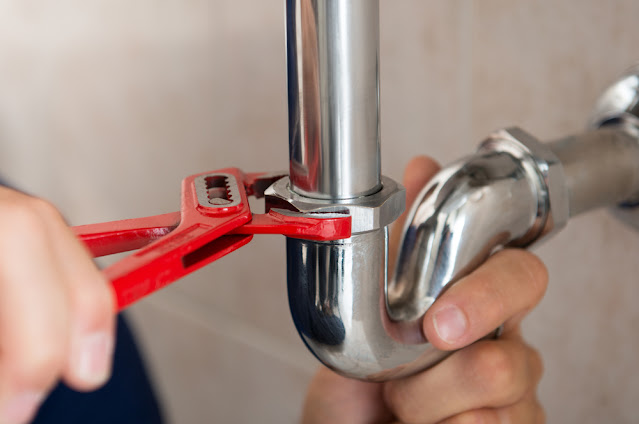Top Six Tips To Avoid Plumbing Problems
As a professional, you know that plumbing problems can cause big headaches. And, if not addressed quickly and properly, they can lead to bigger (and more expensive) problems down the road. Here are six tips to help you avoid plumbing problems in your business. Implement them now and rest easy knowing that your plumbing is in good hands!
Image Source
Regular maintenance is the best way to avoid plumbing problems, but even the most diligent homeowners can experience a clog or leak every now and then. If you're unlucky enough to find yourself with a plumbing issue, follow these tips to minimize damage and get the problem fixed as quickly as possible.
Plumbing problems can be a huge hassle. They can often lead to water damage and costly repairs. In order to avoid plumbing problems, it is important to be proactive and take some precautions. Here are six tips that will help you avoid plumbing problems.
1. Know where your shut-off valves are in case of a plumbing emergency.
If you ever experience a plumbing emergency, knowing where your shut-off valves are can help minimize the damage. Shut-off valves allow you to turn off the water supply to a specific area, which can help prevent further flooding or damage.
Most homes have at least one shut-off valve for the main water line. This valve is typically located near the water meter, and it's important to know where it is in case of an emergency. If you don't know where your shut-off valves are, ask your home's owner or property manager for assistance.
2. Inspect your plumbing system regularly for leaks and other issues.
It's a good idea to inspect your plumbing system regularly for leaks and other issues. If you catch a problem early, it will be easier and cheaper to fix. Some common problems that can occur in plumbing systems include:
-Leaks
-Clogs
-Water pressure issues
-Pipe corrosion
-Poor installation or maintenance
If you're not sure how to inspect your plumbing system, or if you notice any of the above problems, contact a professional plumber for help.
3. Educate yourself on how to properly use and maintain your plumbing fixtures.
If you're like most people, you probably take your plumbing for granted. But if you want to keep your fixtures in good condition and avoid costly repairs, it's important to know how to use and maintain them properly.
-Be sure to read the manufacturer's instructions carefully before using any new fixture.
-When installing or repairing a fixture, be sure to use the proper tools and follow the manufacturer's instructions.
-Never use harsh chemicals or abrasives to clean your fixtures. A soft cloth and warm water will do the trick.
-Be sure to check for leaks regularly and fix any leaks as soon as possible.
4. Only run the dishwasher or washing machine when you have a full load
Did you know that if you run the dishwasher or washing machine when you have only a partial load, it can use more water and energy than if you wait until you have a full load? That’s because the machines need to use enough water to cover all of the dishes or clothes to get them clean. So make sure to wait until you have a full load before running either appliance! You may also want to consider using a dishwasher or washing machine that has an energy-saving mode; these appliances typically use less energy than traditional models.
5. Avoid flushing objects down the toilet that can clog up the pipes
There are a few things that you should avoid flushing down the toilet if you want to keep your pipes from getting clogged. Sanitary napkins, baby wipes, and other similar objects can get caught in the pipes and cause them to clog. If you do happen to flush one of these objects down the toilet, be prepared to deal with a nasty backup! Instead, try throwing these items in the garbage can.
Image Source
6. Have a plumber inspect your system annually to ensure everything is running smoothly
Even if you're not having any problems with your plumbing system, it's a good idea to have a plumber inspect it at least once a year. This will help ensure that everything is running smoothly and that no potential problems are lurking undetected. Plumbers can also recommend ways to optimize your system and save you money on your water bills. So don't wait for the call today and schedule an appointment for your annual plumbing inspection!
Conclusion paragraph:
While plumbing problems are often unavoidable, there are some steps that homeowners can take to minimize the chances of a problem occurring in the first place. By following our top six tips for avoiding plumbing problems, you can help keep your home running smoothly and prevent costly and inconvenient repairs down the road. Have any questions about these tips or need assistance with maintaining your plumbing system? Contact EZ PLUMBING USA today – we’re here to help!
Author Bio:- Josephine Floyd
Josephine Floyd is a marketing head at EZ PLUMBING USA. He is an experienced marketing leader with over 12 years of experience in the plumbing industry. With extensive knowledge of severe water damage, mold damage, and fire damage, as well as general plumbing services, he writes articles about water and flood damage repair and restoration along with heating installation, maintenance, and repair to make readers aware of the potential risk and quick actions they can take to reduce damage. Keep reading his latest articles to have an understanding of whether your plumbing system is intact or not; if not, what you should do to fix it.




Comments
Post a Comment